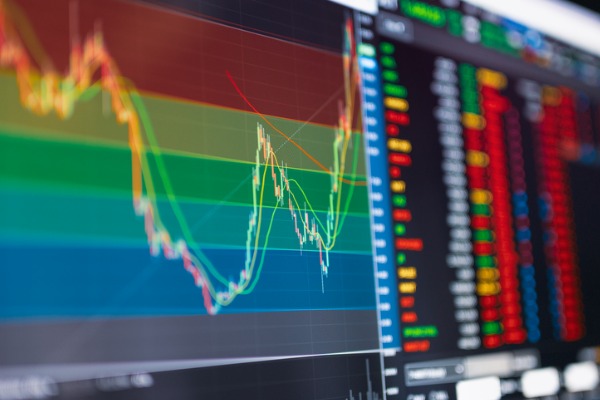British Land down despite big dividend and recovery potential
17th May 2023 08:45
by Richard Hunter from interactive investor
High interest rates have hurt the real estate giant, but its share price has been uninspiring for years. Our head of markets runs through latest annual results looking for signs of optimism.

British Land Co (LSE:BLND)’s exposure to office space and retail has materially impacted its performance, with the economic backdrop providing little hiding space.
The rising interest rate environment is a double-edged sword for the group. Higher rates have lowered demand for property and in turn valuations. As such, British Land saw the value of its property portfolio decrease by 12.3% over the period. More positively, higher rates also translate to higher rental values and, given the group’s high portfolio occupancy rates of 96.7%, this has offset some of the value pain.
"Whilst we remain mindful of ongoing macroeconomic challenges, the upward yield pressure appears to be easing and there are early signs of yield compression for retail parks," said chief executive Simon Carter.
- Learn more: SIPP Portfolio Ideas | How SIPPs Work | Transfer a SIPP
At the same time, the group is showing an increasing interest in investing in retail parks, which inevitably are impacted by both consumer propensity to spend as well as the willingness of retailers themselves to commit to new space. That being said, retail parks are of course generally out of town, meaning lower rents, while for many retailers parks are often more convenient for collection services. The presence of the customer at the parks also leads to the possibility of more impulse purchases, while occupancy costs are also lower for the retailer.
A growing part of the group’s business, especially in London where British Land is mostly focused, is the Urban Logistics business. These units are the hubs for businesses where the stock for fulfilment of online orders is housed and is also geographically convenient for retailers where the consumer increasingly expects priority and even same-day delivery.
The extreme undersupply in this sector resulted in a growth of 29.4% in Estimated Rental Value (ERV) for the period, with rather more pedestrian growth of between 4% to 5% expected in the current year.
The Campus business is also showing signs of promise, despite the inevitable concern of a changing employment model where hybrid working is becoming entrenched. Even so, the market is acutely undersupplied, and the group’s strategy to invest in supply constrained segments with pricing power is one where London in particular fits the bill, with the likes of a renewal from Meta indicating future demand.
These offices are designed as high-quality workspaces within a site which provides opportunities to shop, dine and socialise. These environments tend to be modern, with an eye on sustainability, wellness and flexible space which appeals to potential new customers. A move towards life sciences and innovation companies is also appearing on the radar as a new potential win.
- ii view: Land Securities details robust performance despite falling values
- 10 quality mid-cap shares with promising momentum
- Nick Leeson: The ii Family Money Show
On an underlying basis, profit rose by 7% in the year to 31 March, although a pre-tax loss of £1.04 billion compared to a profit of £965 million last year, with the impact of lower valuations being a major culprit. The balance sheet remains in relative health with financing also in place for the medium term, while the group’s recycling of capital continues to be part of the strategy.
In the period the group made disposals totalling £746 million where it considered the large part of the business plan to have been completed, while also making acquisitions of around £200 million where new opportunities have been identified.
In terms of outlook, British Land sees ERV of between 2% and 4% for both its Campus and retail parks businesses, largely in line with this year’s performance where the two added 2.6% and 2.8% respectively. There is also a strong pipeline in place for new developments, while from an investment perspective the dividend yield of 6% provides some consolation for shareholders who have seen a decline in recent share price fortunes.
Indeed, the current economic environment remains finely balanced and the outlook uncertain. Interest rates may be close to peaking in the UK, but the fallout from this constraint on growth is yet fully to wash through.
Despite British Land’s best efforts to drive forward on those issues within its control, these wider concerns have inevitably been reflected in a share price which has declined by 26% over the last year, as compared to a gain of 3% for the wider FTSE100 index.
- Warren Buffett reveals his biggest holdings including UK’s Diageo
- How to protect and grow wealth in turbulent times
More positively, the group is well placed to benefit over the longer term from improving economic fundamentals, and the market consensus of the shares as a 'cautious buy' could reflect some willingness to look through the current challenges.
These articles are provided for information purposes only. Occasionally, an opinion about whether to buy or sell a specific investment may be provided by third parties. The content is not intended to be a personal recommendation to buy or sell any financial instrument or product, or to adopt any investment strategy as it is not provided based on an assessment of your investing knowledge and experience, your financial situation or your investment objectives. The value of your investments, and the income derived from them, may go down as well as up. You may not get back all the money that you invest. The investments referred to in this article may not be suitable for all investors, and if in doubt, an investor should seek advice from a qualified investment adviser.
Full performance can be found on the company or index summary page on the interactive investor website. Simply click on the company's or index name highlighted in the article.